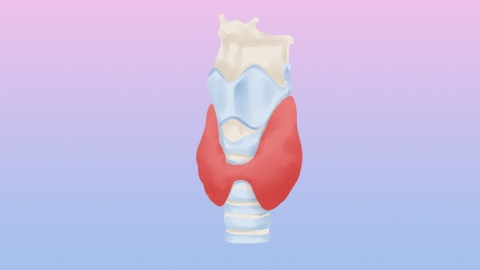How autoimmune diseases affect thyroid function
Autoimmune diseases primarily affect thyroid function by attacking thyroid tissue and interfering with hormone synthesis. Common conditions include Hashimoto's thyroiditis, which destroys thyroid follicles; Graves' disease, which causes overactivity of the thyroid; systemic lupus erythematosus, which affects thyroid blood vessels; Sjögren's syndrome, often accompanied by thyroiditis; and rheumatoid arthritis, which indirectly impacts thyroid metabolism. A detailed analysis is as follows:

1. Hashimoto's thyroiditis destroys thyroid follicles: Autoantibodies attack thyroid follicular cells, damaging follicular structure and reducing the raw materials needed for thyroid hormone synthesis. This gradually leads to hypothyroidism, characterized by insufficient hormone secretion and a slowed metabolic rate.
2. Graves' disease causes excessive thyroid activity: Autoantibodies mimic the action of thyroid-stimulating hormone (TSH), continuously stimulating thyroid tissue and resulting in excessive secretion of thyroid hormones. This leads to hyperthyroidism, causing symptoms such as accelerated metabolism and increased sympathetic nervous system activity.
3. Systemic lupus erythematosus affects thyroid blood vessels: Immune complexes deposit on the walls of thyroid blood vessels, triggering vasculitis. This impairs blood supply to the thyroid gland, leading to ischemia and hypoxia in thyroid tissue, thereby disrupting hormone synthesis and secretion, potentially causing thyroid dysfunction.
4. Sjögren's syndrome associated with thyroiditis: The immune system simultaneously attacks salivary glands and the thyroid gland, causing chronic inflammation of the thyroid. This progressively damages thyroid cells and impairs hormone production, often manifesting as hypothyroidism or subclinical thyroid dysfunction.
5. Rheumatoid arthritis indirectly affects thyroid metabolism: In a state of chronic inflammation, abnormal levels of cytokines interfere with the synthesis, conversion, and utilization of thyroid hormones. This may lead to abnormal thyroid function tests, most commonly presenting as subclinical hypothyroidism.
If symptoms of thyroid dysfunction—such as fatigue, unexplained weight changes, or mood fluctuations—occur, medical evaluation of thyroid function and autoantibodies should be sought promptly.







